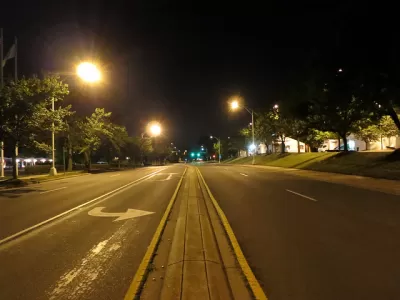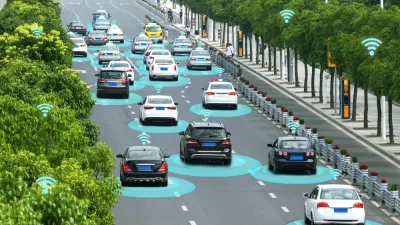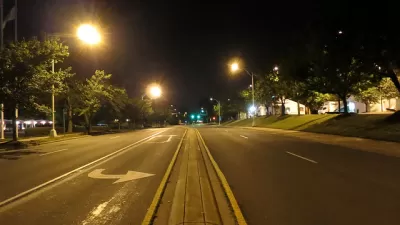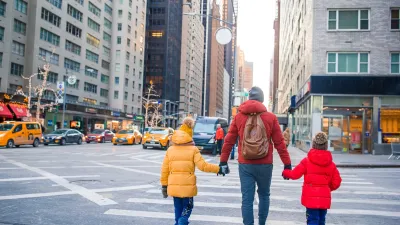For the Charlotte Observer, Ely Portillo reports on a forum calling for urbanist reforms and doubts whether auto-loving residents will be receptive.

Like most of the United States, Charlotte, North Carolina relies heavily on auto infrastructure. This may not change soon: "Despite some of the steps Charlotte has taken toward a 'little asphalt' mindset – think reducing the number of East Boulevard lanes, the streetcar, the Blue Line extension and more bike lanes – this remains largely a car town."
Author Ely Portillo writes, "I have family in southeast Charlotte, a 30-minute drive from where I live, and if widening Independence Boulevard would cut that time even five minutes, well, that sounds pretty attractive to me – even if it's not a long-term solution to sprawl." Residents are used to free parking, and concerns about traffic lessen the attraction of policies like complete streets and traffic calming.
Reasons in favor of more 'little asphalt' in Charlotte apply across the country:
- Increased interest in urban life among (some, not all) Millennials and empty-nest Boomers.
- Sprawl and car-heavy infrastructure degrades the environment on a number of levels.
- Grids of smaller roads may reduce traffic by diverting it, rather than relying on one or two clogged arterials.
FULL STORY: Can Charlotte overcome its love of roads?

Study: Maui’s Plan to Convert Vacation Rentals to Long-Term Housing Could Cause Nearly $1 Billion Economic Loss
The plan would reduce visitor accommodation by 25,% resulting in 1,900 jobs lost.

North Texas Transit Leaders Tout Benefits of TOD for Growing Region
At a summit focused on transit-oriented development, policymakers discussed how North Texas’ expanded light rail system can serve as a tool for economic growth.

Why Should We Subsidize Public Transportation?
Many public transit agencies face financial stress due to rising costs, declining fare revenue, and declining subsidies. Transit advocates must provide a strong business case for increasing public transit funding.

How Community Science Connects People, Parks, and Biodiversity
Community science engages people of all backgrounds in documenting local biodiversity, strengthening connections to nature, and contributing to global efforts like the City Nature Challenge to build a more inclusive and resilient future.

Alabama: Trump Terminates Settlements for Black Communities Harmed By Raw Sewage
Trump deemed the landmark civil rights agreement “illegal DEI and environmental justice policy.”

Dear Tesla Driver: “It’s not You, It’s Him.”
Amidst a booming bumper sticker industry, one writer offers solace to those asking, “Does this car make me look fascist?”
Urban Design for Planners 1: Software Tools
This six-course series explores essential urban design concepts using open source software and equips planners with the tools they need to participate fully in the urban design process.
Planning for Universal Design
Learn the tools for implementing Universal Design in planning regulations.
City of Santa Clarita
Ascent Environmental
Institute for Housing and Urban Development Studies (IHS)
City of Grandview
Harvard GSD Executive Education
Toledo-Lucas County Plan Commissions
Salt Lake City
NYU Wagner Graduate School of Public Service





























